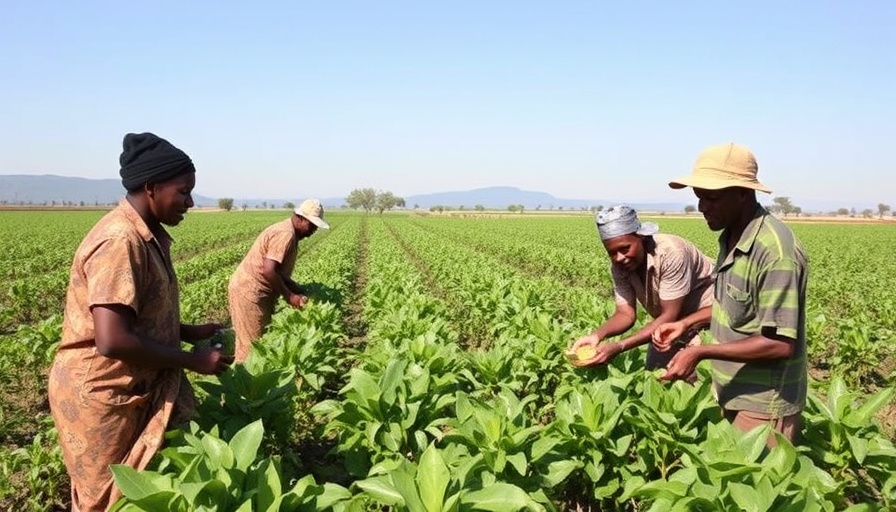
A Climate-Resilient Agrifood Future in Southern Africa
As Southern Africa faces unprecedented climate challenges, the recent Regional Dialogue on Agrifood Systems is paving the way for a climate-resilient future. Highlighted by innovative collaborations among countries, stakeholders, and organizations like the FAO, the region is becoming a beacon for sustainable agrifood systems. This critical dialogue not only addresses urgent issues such as food security and agricultural sustainability but also outlines actionable strategies to help communities adapt to changing climates.
Transformative Innovations in Agrifood Systems
The key to achieving a climate-resilient agrifood future lies in transformative innovations that integrate technology and best practices. From AI and machine learning applications that optimize supply chains to blockchain initiatives ensuring transparency in food sourcing, Southern Africa is leveraging technological advancements to improve agrifood systems. These tools help smallholder farmers access vital information, improve crop yields, and ultimately contribute to enhanced food security.
The Role of Partnerships and Policy Frameworks
Partnerships among governments, the private sector, and civil organizations play a crucial role in the implementation of these initiatives. The FAO's collaboration with various stakeholders has resulted in fruitful projects such as the Hand-in-Hand initiative, which unlocks investments for climate-smart technologies. The goal is not just to improve agricultural output; it extends to creating supportive policy frameworks that ensure equitable access to resources for all farmers, particularly those in marginalized communities.
Case Studies: Success Stories from the Region
Across Southern Africa, numerous success stories demonstrate the efficacy of these initiatives. For example, Zimbabwe's community seed banks are empowering smallholder farmers by facilitating local seed production and conservation. Meanwhile, Namibia's resilience-building programs showcase innovative approaches to water management, crucial for agricultural productivity in the face of climate change. These examples illustrate that while challenges are significant, there are proven pathways to overcome them through strategic innovation and collaboration.
Future Trends: What Lies Ahead?
As the dialogue continues, predictions indicate that agritech innovations will transform the landscape of agriculture in Southern Africa. The rise of smart farming, using IoT devices and data analytics for precision agriculture, is expected to significantly boost productivity while minimizing environmental impact. Furthermore, the ongoing emphasis on renewable energy sources will enhance the sustainability of agrifood systems, creating a robust framework for the future.
Final Thoughts: The Call to Action
In light of these developments, it is imperative for executives, policymakers, and all stakeholders in the agrifood sector to engage in these evolving dialogues. Your active participation can influence the transformation of agrifood systems in Southern Africa, ensuring a resilient future that addresses both current and future challenges. The opportunity to contribute to a sustainable and food-secure region is here—let's take action together.
 Add Row
Add Row  Add
Add 




Write A Comment